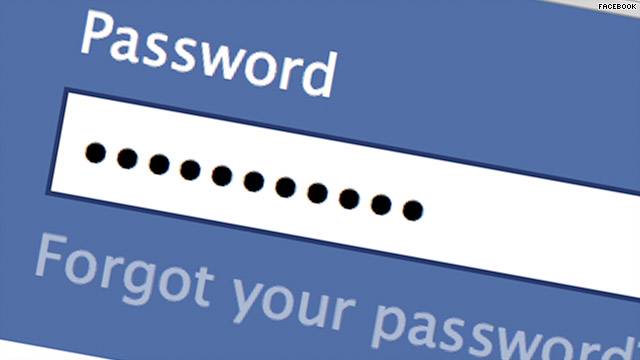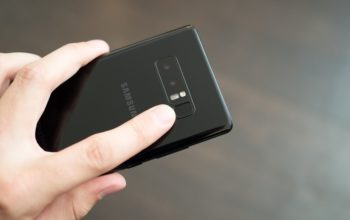Facebook is one of the most popular social networking websites on the internet.Facebook has more than a billion users, so facebook is a favorite target of hackers.
Despite the security concerns that have plagued Facebook for years, lots of people are still sticking around and millions join everyday. The scary part is some Facebook accounts are hacked, but the good thing is it doesn’t happen to everyone. Today, in this article I have outlined ways through which these malicious beings hack Facebook accounts and preventive measures to help you safeguard against hackers.
1. Hack Facebook account using key logging
Key logging is presumably the easiest way to hack a Facebook account password. A key logger is a program that records the keystrokes on a computer. It does this by monitoring a user’s input and keeping a log of all keys that are entered. The log may be saved to a file or even at times sent to another machine over a network or the internet. Key logging is a very much cunning method that even people with extensive computer knowledge have fallen victim to it.

This is how you can avoid key loggers ?
- Scan your USB drives for virus
- Always download software from trusted sites
- Always maintain a good antivirus and internet security to avoid key loggers.
2. Hack Facebook account using phishing
Phishing is one of the most popular ways for hacking a facebook account. In Phishing, the hacker creates a fake login page or create a clone of facebook login page that looks like the real facebook page. In the next step facebook, hacker asks the victim to log in through the fake phishing web page, victim username and password stored in a hacker computer.

How to Protect yourself from Facebook Phishing ?
- Never login your facebook account on another computer.
- Always avoid emails that ask you to log in your facebook account in the new tab.
- Never open any spammy links that give by your friend in the message box or by SMS.
- Always use Chrome browser, chrome identifies the phishing page.
- Use Antivirus in your computer.
- Make sure you are on facebook.com and double-check the web address.
3. Hack Facebook account password by session hijacking
Session hijacking is where the hacker steals the victim’s browser cookie which is used in authentication of the user on a website and after getting the cookie, the hacker can then access the victim’s account. Session hijacking is mostly common when accessing Facebook on an HTTP (non-secure) connection and it is widely used on LAN and Wi-Fi connections.

4. Saved passwords from browsers
Most of us are fond of granting permission to our browsers to save our usernames and passwords on our devices be it a computer or smartphone.
Anyone can hack your Facebook account from your browser’s password manager. Because of that never save your password on your device. For you may never know when the info will be hijacked.
How to avoid against hijacking ?
- Never save login credentials on your browser
- Always use a strong password on your computer
5. Sidejacking with firesheep
Firesheep is mostly used to carry out sidejacking attacks. However, firesheep only works when the attacker and victim are on the same Wi-Fi network. A sidejacking attack can similarly be looked at as HTTP session hijacking though it’s more directed towards Wi-Fi users.

6. Mobile Phone Hacking
Generally, we reset our facebook password from our mobile phone. What if someone install monitor apps in our phone. With monitor apps, hackers can access and read your all sms and he can easily reset your facebook password in just seconds.

How to Protect yourself from Facebook Mobile Phone Hacking ?
- Always install a good antivirus in your mobile phone.
- Never install unknown apps in your phone.
- Always check your phone for suspicous apps
7. DNS spoofing
With DNS spoofing, the hacker, if on the same network with the victim, can change the original page and replace it with his own fake page and easily gain access to the victims Facebook account.

How to safeguard against spoofing ?
- Always configure it to be secure against cache poisoning
- Manage your DNS servers securely
- Separate the authoritative function from resolving function using different servers
8. USB hacking
A hacker can get physical access to your computer and insert a USB programmed to automatically extract or retrieve saved passwords in the internet browser or any other information the hacker may need.

How to protect yourself ?
- Insert trusted USB devices into your computer
- Avoid sharing your computer
- Don’t purchase second hand USB devices
- Scan USB devices once plugged in
9. Man in the middle attacks
With this method, it’s very tricky when the hacker and victim are on the same LAN and on a switch based network. The hacker places himself between the client and the server, or he could act as a default gateway and capture all the traffic in between.

How to safeguard against this ?
- Use VPN services
- Use a proxy server to access the internet
- Use good antivirus with good firewall options
10. Botnets
Basically, botnets are networks made of remote controlled computers or bots. These bots have been infected with malware that allows them to be remotely controlled. It’s expensive to set up botnets and this makes them to be minimally used in cases of hacking Facebook accounts. Some very popular botnets include spyeye and zeus.

How to safeguard against botnets ?
- Keep all your software up to date
- Use strong passwords and keep them secret
- Ensure that your firewall is always on
- Use flash drives cautiously
11. Social engineering
Social engineering is a simple method that’s based on collecting as much info from the victims as possible. The information may include date of birth, phone number, etc. once a hacker gains access to this info and somehow it’s the same info used as a password, then the hacker can get access into the Facebook account effortlessly.

How to avoid this ?
- Never share personal info via email or phone
- Avoid links from unknown or suspicious sites
- Block USB devices to minimize risk of baiting
12. Email ID hacking
With this method, the hacker only needs to access the connected email id of any account and then reset the Facebook password manually.

How to avoid this ?
- Enable 2 step authentification in your Gmail account
- Use strong passwords
- Avoid entering email on scrupulous sites
13. Hacking Wi-Fi network
If you have a Wi-Fi router, it’s better to set it up with a strong password. If you use a weak password to set up the router security, a hacker can hack your Wi-Fi network and hijack all your internet traffic which can let eventually expose your Facebook account.

How to avoid this ?
- Avoid free Wi-Fi or public Wi-Fi
- Always use VPN to access Wi-Fi
- Always change your Wi-Fi password
14. Logout
Unfortunately people love logging in but don’t like logging out. That’s why very many Facebook users never log out their Facebook accounts from their computer. With your Facebook account logged in, anyone can access your Facebook. Therefore, always endeavor to log out every time you are done using your account.

With all that information, I assume you will know how to protect your accounts better and safeguard from the malicious hackers. If you have anything to add, please inform us in the comments section.

 Also Read :5 Announcements from the 2017 Microsoft Event
Also Read :5 Announcements from the 2017 Microsoft Event Also Read: APPLE OR ANDROID WHICH ONE IS MORE SECURE ?
Also Read: APPLE OR ANDROID WHICH ONE IS MORE SECURE ?


Thanks for all advices
welcome
Your Welcome